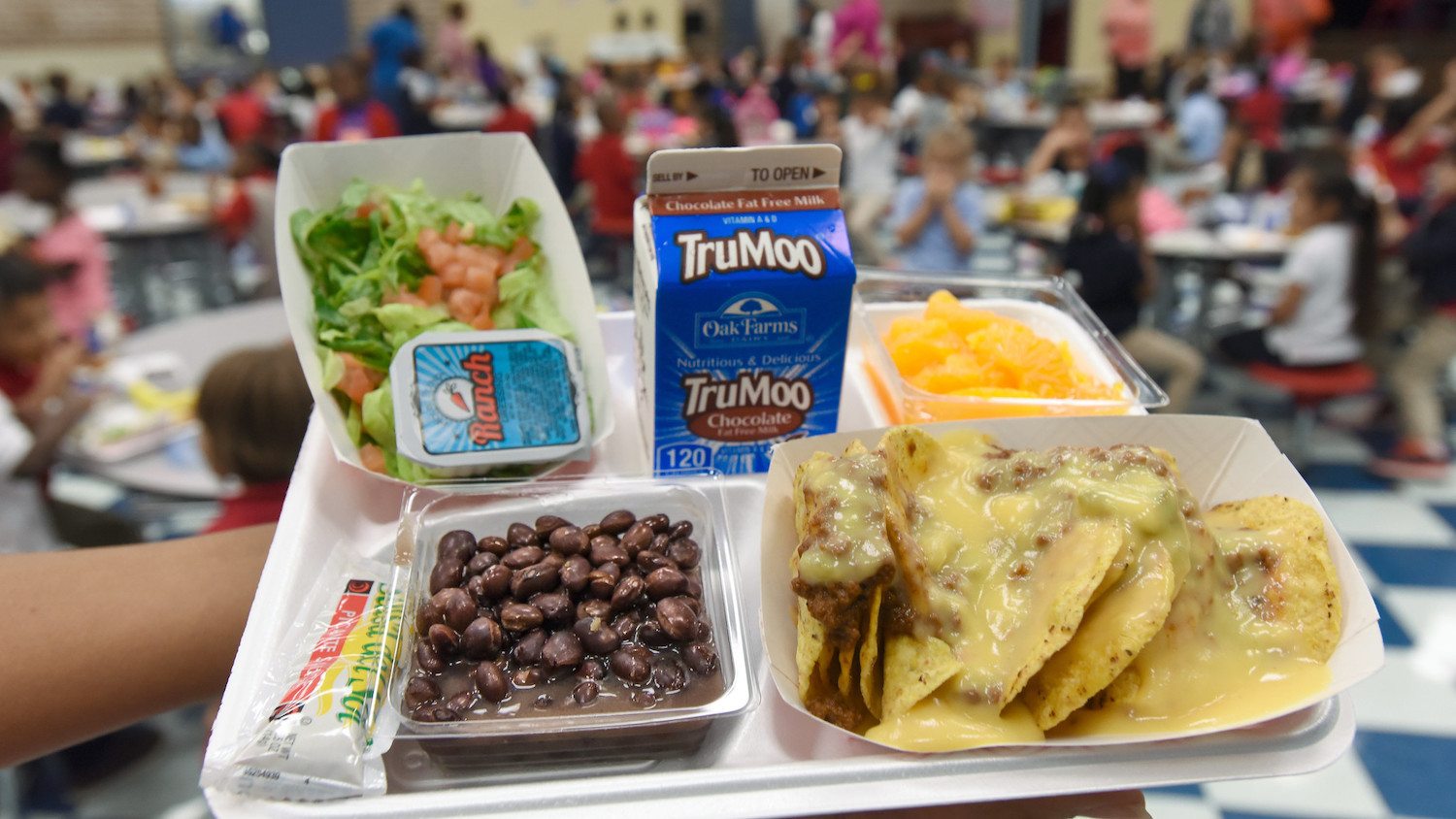

Making kid food less healthy again—again.
With less than two months left on the clock before President-elect Joe Biden takes up residence in the White House, the Trump administration has sent a Hail Mary pass in an effort to roll back school nutrition guidelines that had made student meals lower in fat, refined grains, and salt.
The Department of Agriculture (USDA) on Wednesday published in the Federal Register a proposal that would reintroduce 1 percent chocolate milk in schools, cut whole-grain serving requirements in half, and give nutrition directors more time to meet weakened sodium reduction targets.
If this rundown is giving you déjà vu, there’s a good reason for that. The proposal is virtually indistinguishable from a final rule the agency published in December of 2018, and that a federal judge tossed out on procedural grounds earlier this year.
“These proposed changes respond directly to the needs of nutrition professionals who are the experts on-the-ground, hearing from our children every day.”
The latest provisions will likely please school food administrators, who have called for looser nutrition regulations in the past, USDA acknowledged in a news release.
“These proposed changes respond directly to the needs of nutrition professionals who are the experts on-the-ground, hearing from our children every day,” it read.
Of course, not everyone is pleased by USDA’s ongoing efforts to de-regulate school food. Public health groups decried the move as an attempt to roll back nutrition standards at the “13th hour of this administration.”
“[USDA] is trying to make it as difficult as possible to ensure that school meals meet science-based nutrition standards,” said Colin Schwartz, deputy director of legislative affairs at the Center for Science in the Public Interest. Schwartz believes that any changes to school nutrition standards should be informed by the next iteration of the Dietary Guidelines, which are scheduled for publication next month.
“USDA is trying to make it as difficult as possible to ensure that school meals meet science-based nutrition standards.”
This latest move isn’t the only way the Trump administration has attempted to cut red tape around school food. Earlier this year, it proposed another rule that would decrease the amount of fruit that schools are required to offer during breakfast, and increased the amount of starchy vegetables like corn and white potatoes they could offer at lunch.
USDA has regularly made the case that current school nutrition standards make meals less appealing to kids, resulting in more food waste. However, the agency’s own research has found that to be untrue.
The agency has opened up Wednesday’s proposal for comment through December 28, giving it just shy of a month to finalize and bring it to fruition before Trump leaves office. You can share your thoughts on the rule here.
Grist, an award-winning, nonprofit media organization dedicated to highlighting climate solutions and uncovering environmental injustices,…
Every year, California dairy farms emit hundreds of thousands of tons of the potent greenhouse…
Highway 7 runs north-south through western Washington, carving its way through a landscape sparsely dotted…
One of the greatest pleasures I had as a child growing up in the Chicago…
Undocumented immigrants experience food insecurity at much higher rates than other populations, yet they are…
Writer Charlotte Druckman and editor Rebecca Flint Marx are both Jewish journalists living in New…